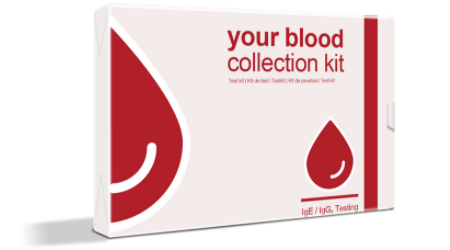We all knew that one kid that seemed to be allergic to, well, everything. He or she was allergic to hay, pollen, bee stings, dust, nuts, fruits, fish and more. However, more often than not, most people who have food allergies only have one or maybe two. Some have several that show up on a food allergies test, but they are often mild to moderate at the most. When it comes to severe allergies, it’s often only one food allergy at a time (in most cases).
While this is not a complete list, it’s thought that 90% of reactions are caused by less than ten food allergens. If that surprises you, you’re not the only one. It’s nice to know that there aren’t 100 possible options that equally frequent. Otherwise, that would be a lot of needle pokes!
Possible food allergens
When you formally get an allergy test specifically for food allergens, your sample will be run against 30 or more possible allergens, so you don’t need to worry about being tested for only the below items and having something missed on a formal test. The most common food allergens are:
- Fish and/or shellfish
- Peanuts and/or tree nuts
- Milk
- Wheat
- Soy
- Eggs or egg products
The odds are that most of these you were expecting, right? The most common ones that you hear about in schools are peanuts and tree nuts, as these are often banned from schools to prevent a severe reaction.
Not all allergic reactions are equal with these allergens. Some have allergic reactions that are annoying and nothing more. Perhaps it’s an upset stomach combined with diarrhea after eating the allergen. For others, it could be a rash, congestion or itchy eyes. However, the most common public reaction to these is the severe one, which includes difficulty breathing or an erratic heartbeat.
When to get a food allergy test
It makes sense that you might feel the need to get an allergy test if you just get the sniffles or a cough after eating soy products. However, it is important to remember that one reaction does not necessarily guarantee another. What is sniffling and itching one time could potentially be difficulty breathing and dizziness another time.
You should always get a food allergy test done if you suspect a food allergy. Not only does it confirm the allergen (sometimes they can be confused for another in a combined plate of food or meal), it also will help you be on the lookout for any other possible allergens you may have missed.
You don’t want to mess around with something as serious as a food allergy. Understanding the possible food allergens and the role of an allergy test is going to help you stay in control of your diet, your possible reaction, and simply make life easier and more enjoyable for everyone, especially you! You deserve to have a better relationship with food, and properly identifying and documenting a food allergy is going to be the first step you can take.


